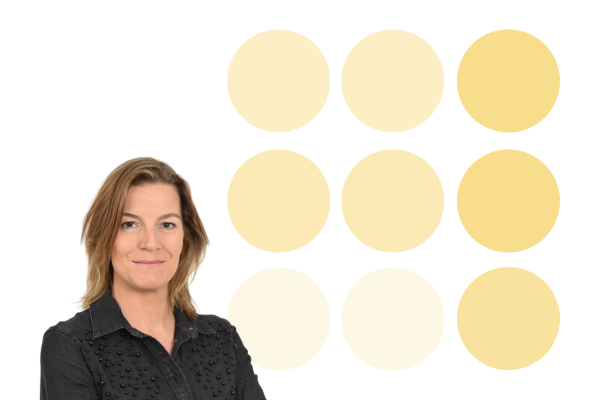
In this series, we engage with leading figures from the asset management industry and around it. This time we spoke with Judith Boom, committee chair of Fund Regulation & Investment Services and active in daily life as a lawyer at APG Asset Management.
She has long been a member of various expert groups within DUFAS. Since 2023, Judith Boom, active in daily life as a lawyer at APG Asset Management, has been chairing the Fund Regulation & Investment Services committee and has a different role: all stakeholders give their opinions on new legislation and emerging issues, and she is looking for ways to deal with this neutrally as chair and formulate a common position.
What does the job of a committee chair look like?
"I did think for a while about the position that became available. You do have a different role. You have to ensure that everyone can put concerns on the table and that they all feel heard during discussions about new legislation from Europe or the Netherlands. As chairman, I do not speak on behalf of one company. I facilitate that other representatives of DUFAS members share their views and that this happens in a good and trustworthy environment. We meet four times a year and usually we do that through Teams, sometimes it is nice to meet physically as well."
Why are these committees so important?
"The people at DUFAS can come up with a lot themselves, but the strength is in the knowledge of all the members. There are many working groups under my committee, so there is a wide area of interest. When we see legislative proposals from the European Commission or the Dutch government, or questions and answers published by Dutch or European regulators, we all want to know what it means. In a working group we dive into it in detail. We also do that when a law goes into consultation. Then the European Commission asks asset managers to fire on it, for example. We get a whole list of questions, sometimes up to 25 pages long and designed in a specific way. Quite a bit of work goes into that. So we get to see a lot and have an opinion on a lot of things."
What else passes you by as president?
"There has been much thought for some time about the question of how do you get people who save to invest? Often investing is not well understood. Then we are asked for ideas by the Ministry of Finance, for example, and we contribute views on behalf of DUFAS.
I cannot imagine that all participants on your committee think the same way about bills.
"What you see is that we often recognize the same pain points when you zoom in on new laws. We run into the same things. Then my challenge is to get the whole group talking about common solutions. Indeed, we have more discussion about those solutions. Sustainability is a good example. Some have the intrinsic conviction that it cannot go far enough, while others stress that the pace should not be too high. You then talk about that at length with each other."
Isn’t it strange that you guys are at the table on new legislation? The financial sector has not always been in a good light since the crisis.
"Stakeholders are often given the opportunity to suggest improvements to laws and regulations under preparation. For example, because the legislator organizes consultation rounds. After the financial crisis there has been a period with a lot of new legislation or tightening of existing legislation followed by a new priority such as sustainability and digital resilience which have also been reflected in legislation. From the perspective of the European Commission or the Dutch government, legislation is an obvious tool to deploy. What we have seen is good legislation, but in fairness, also unclear or difficult to implement legislation. This has been indicated from the sector, through consultation responses, but the feedback given has not been listened to in all cases. You now see a tilt in that direction. Ultimately, you want legislation that adds value because it is explainable and works."
Can you give an example of that tilt?
"The regulatory burden has increased and so has the cost of supervision. Institutions under supervision have to pay for that supervision themselves. Now politicians dare to ask the question: why is it getting more expensive every year?"
What makes it so fun to be on a committee or working group?
"The views of DUFAS would not exist without the input of the participants. All relevant topics are on the table. The best part is when you recognize pain points in other members, what impact legislation has and that you come up with creative solutions together. Sometimes shared sorrow is also half sorrow. We are not always on the same page, but positions are never pushed through. On average I work four hours a week, so that’s not too bad. Of course there are peaks. For example, if there have been new elections and the cards have been reshuffled, we always look at how the dice have fallen and determine whether it is good to share positions again. Then it is often just a little busier, just like with the implementation of new laws. The work is never finished and it is never boring!"